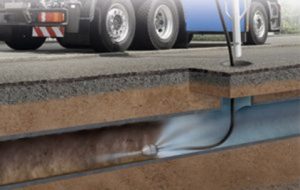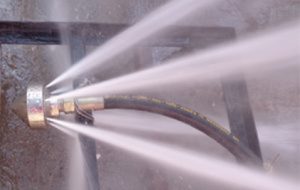there are many plumbers in the world. Plumbers know how to clean and maintain all the plumbing in a house. Drainage line cleaning is not a problem for a plumber, but chances are you aren’t a plumber. For those of us who aren’t trained to take care of plumbing, it can seem like a daunting task. Sewer lines are long, and all the water and waste we flush goes down them. If your drains start making strange noises, or if they start smelling bad, it is time to clean them out. Drainage Line Cleaning All drainage lines run to the sewer system of your house. Every drain, whether it is in a sink, shower, or the toilet, joins the sewer lines running out of your house. These are called lateral lines, and they run to sewer mains or a main line. If your sewer needs cleaning, you will know it. Strange noises, smells, and slow flushing drains are all symptoms that your sewer line needs help. Not every situation calls for a plumber, however, and there are things you can do to take care of a lot of problems.
1. Clean Your Lines Often One way you can achieve this is by purchasing an enzyme cleaner. Enzyme cleaners come in a great variety of types. Some remove pet stains, but others are useful for cleaning out drainage lines. Any plumbing supply outlet and most hardware stores will have high-grade cleaners for this purpose. Follow the manufacturer’s instructions and make sure to put the cleaner in a large drain. The best choice for this is a basement drain, but any large drain will work. Enzyme cleaners work via a biological reaction, so time is required. Be patient and wait for the cleaner to do its work.
2. Baking Soda and Vinegar A common cleaning solution a lot of people use to degrease is baking soda mixed with vinegar. The chemical reaction that is caused when these two are mixed is foamy and will bubble. The bubbles will help the baking soda scrape away grease that can be causing clogs. When the grease cools off, it can become very sticky. Other types of debris will get trapped in the grease that is sitting in your lines. It is possible to get grease in your sewer lines even if you don’t dump a lot down the drain. Over time build-up will occur, and this cleaning trick is quick and easy and can be done anytime.
3. Flush Your Lines If you aren’t dealing with a clog, you can clean your lines by flushing them with water. While doing this, put a little bit of drain cleaner into the water. A toilet is a great place to do this, as it allows a lot of water and cleaner to go down together. If you have a clog, this is not a good idea. The more water you put in the line, the more will backup. It might not even be possible if the water is high enough. Any time you are cleaning your sewer lines, you must make sure that you don’t have any clogs. If you do, they need to be taken care of first.
4. Drain Cleaners Are a Great Option You don’t want to use abrasive chemical cleaners very often, as they can degrade your pipes. However, a couple of times a year, you can flush drain cleaners down your lines. When you do this, make sure you’re not using too much water or flushing any other drains. The chemical needs time to sit in the pipes to dissolve any debris and waste that might be building up. Reducing the amount of build-up in your line will help to prevent a clog.

5. Look for Professional Drain Cleaning Not all plumbers have the equipment to clean the main sewer lines. Look for a sewer cleaning plumber that offers this service, and they will have specialized equipment that can help. Question the plumber you hire about what the process will take and how long it will be. Some clogs aren’t easy to clear, and others can indicate damage to your sewer line. If you’ve kept your lines clean and taken the time to attempt to remove the clog, it could mean bigger trouble. Having a professional inspect your sewer lines can save you a lot of stress and money.


Please contact us for free quotation by form below. We promise the quickest response within 24 hours: